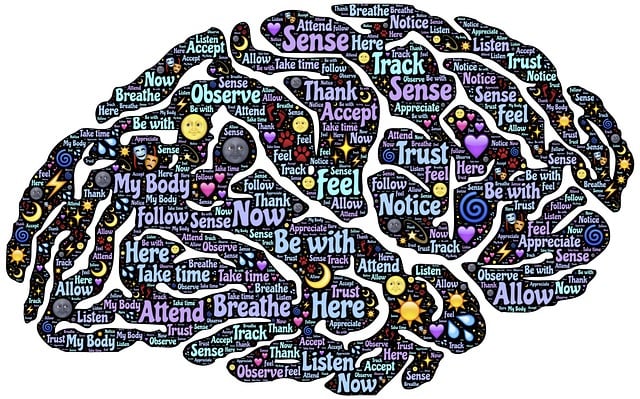Mental illness diagnoses are often complicated by human behavior's inherent complexity, cultural variations, and subjective assessment. Standard tools may misrepresent individual cases, especially with co-occurring disorders. To address this, specialized treatments like Littleton Exposure and Response Prevention (LERP) Therapy focus on trauma-specific fears and avoidance behaviors, improving diagnosis accuracy. LERP combines exposure therapy with response prevention techniques, reducing traumatic impact, fostering resilience, and enhancing mood management. It also promotes cultural sensitivity and self-awareness in patients. Integrating LERP into traditional practices requires interprofessional training and open dialogue for effective implementation, ultimately improving diagnostic accuracy and access to support services via technology and education.
Mental illness diagnoses, though crucial for effective treatment, face significant challenges. This article explores current limitations in diagnosis accuracy and introduces Littleton Exposure and Response Prevention Therapy (LERP) as a novel solution. We discuss how LERP enhances diagnostic precision through empirical evidence and case studies. Additionally, we provide practical steps for professionals to integrate LERP into traditional practices. Future directions focus on expanding access to accurate mental health diagnoses, ultimately improving patient outcomes.
- Understanding Mental Illness Diagnoses: Current Challenges and Limitations
- Introducing Littleton Exposure and Response Prevention Therapy (LERP): A Novel Approach
- How LERP Enhances Diagnosis Accuracy: Case Studies and Empirical Evidence
- Integrating LERP into Traditional Diagnostic Practices: Practical Steps for Professionals
- Future Directions and Impact: Expanding Access to Accurate Mental Health Diagnoses
Understanding Mental Illness Diagnoses: Current Challenges and Limitations

Mental illness diagnoses often face significant challenges and limitations, impacting their accuracy. One of the primary issues is the complexity of human behavior and emotions, which can vary widely among individuals. Mental health professionals rely on standardized tools and criteria, like the Diagnostic and Statistical Manual (DSM), to make diagnoses, but these systems may not fully capture the nuances of each person’s experience. This can lead to misdiagnoses or delayed treatment, as symptoms might be attributed to the wrong condition.
Additionally, the subjective nature of mental health assessment presents a hurdle. Therapists must interpret self-reported symptoms and observations, which can be influenced by personal biases and cultural factors. For instance, certain behaviors or emotions may be expressed differently across cultures, making diagnosis more intricate. Furthermore, co-occurring disorders are common, where an individual might struggle with multiple mental health conditions simultaneously. This complicates the diagnostic process, as each disorder requires tailored treatment approaches, such as Littleton Exposure and Response Prevention Therapy for specific anxiety-related conditions, or Self-Care Routine Development for Better Mental Health to address underlying stressors. Effective diagnosis thus demands a comprehensive understanding of these complexities, highlighting the need for Mental Health Education Programs Design that equip professionals with the latest research and Empathy Building Strategies to foster more accurate and compassionate mental illness assessments.
Introducing Littleton Exposure and Response Prevention Therapy (LERP): A Novel Approach

Introducing Littleton Exposure and Response Prevention Therapy (LERP) represents a significant advancement in mental health treatment. This innovative approach focuses on addressing specific fears and avoidance behaviors associated with trauma, offering a novel solution to enhance diagnosis accuracy, particularly for complex cases. LERP is designed to help individuals confront and process traumatic memories while learning effective coping strategies.
By combining exposure therapy with response prevention techniques, LERP aims to reduce the impact of traumatic events on an individual’s life. This method encourages patients to gradually engage in activities or situations that trigger anxiety, helping them manage their responses and gain control over their emotions. The ultimate goal is not only to improve mental health but also to foster resilience, enhance public awareness campaigns development related to trauma support services, and facilitate better mood management.
How LERP Enhances Diagnosis Accuracy: Case Studies and Empirical Evidence

Littleton Exposure and Response Prevention (LERP) Therapy is a highly effective approach that significantly enhances mental illness diagnosis accuracy. By focusing on desensitizing individuals to stressful situations and teaching them new coping strategies, LERP helps patients confront and manage their fears directly, leading to more precise assessments of their symptoms. Numerous case studies have demonstrated its success in treating various conditions, from anxiety disorders to depression, where accurate diagnosis was initially challenging due to complex presentations or comorbidities.
Empirical evidence supports the use of LERP, showing improved diagnostic clarity and patient outcomes. Research indicates that individuals who undergo this therapy exhibit reduced avoidance behaviors, increased emotional awareness, and better self-management skills, all of which facilitate more accurate mental health evaluations. Additionally, cultural sensitivity in mental healthcare practice is enhanced through LERP as it promotes understanding of diverse experiences and belief systems, ensuring inclusive and effective diagnosis and treatment plans. Self-awareness exercises incorporated into the therapy further benefit patients by encouraging reflection and communication about their symptoms, fostering a collaborative environment for mental healthcare providers to make more informed diagnoses.
Integrating LERP into Traditional Diagnostic Practices: Practical Steps for Professionals

Integrating Littleton Exposure and Response Prevention (LERP) Therapy into traditional diagnostic practices offers a promising approach to enhancing mental illness diagnosis accuracy. LERP, an evidence-based therapy, focuses on desensitizing individuals to traumatic memories and associated responses. By incorporating this technique, healthcare providers can gain deeper insights into patients’ psychological states, especially those with complex or hidden trauma histories. This integration involves several practical steps.
Firstly, professionals should undergo specialized training in LERP techniques and their application in diagnostic settings. Such training equips them with the skills to conduct thorough assessments, identify trauma-related symptoms, and interpret patient responses accurately. Additionally, fostering interprofessional collaboration between therapists, psychiatrists, and psychologists ensures a comprehensive understanding of the patient’s condition. Encouraging open dialogue about LERP within healthcare institutions can facilitate its consistent and effective implementation, ultimately improving diagnostic accuracy and enhancing Trauma Support Services for individuals struggling with mental health challenges.
Future Directions and Impact: Expanding Access to Accurate Mental Health Diagnoses

In the pursuit of enhancing mental health care, future directions focus on expanding access to accurate diagnoses, particularly through innovative therapeutic approaches like Littleton Exposure and Response Prevention Therapy (LERP). This evidence-based method has shown promising results in treating various mental illnesses by desensitizing individuals to triggers and promoting healthier coping mechanisms. By integrating LERP into standard care, healthcare providers can improve diagnostic accuracy and patient outcomes, reducing the impact of mental illness stigma.
Additionally, leveraging technology through online platforms and Mental Wellness Podcast Series Production can increase accessibility to resources and support for those seeking help. These media formats not only provide education but also offer a sense of community, fostering open conversations about mental health. Coupled with Stress Reduction Methods, these initiatives aim to create a more inclusive and supportive environment, ensuring that individuals receive the care they need, when they need it, ultimately leading to better mental wellness outcomes.
The pursuit of accurate mental illness diagnoses is an ongoing journey, and the introduction of Littleton Exposure and Response Prevention Therapy (LERP) offers a promising step forward. By focusing on specific exposure and response patterns, LERP provides a novel approach that enhances diagnostic accuracy, as evidenced by successful case studies. Integrating this therapy into traditional practices can lead to more effective patient care and improved access to quality mental health diagnoses. Future research should explore expanding LERP’s reach, ensuring its benefits are accessible to a wider population, ultimately revolutionizing the way we understand and diagnose mental illnesses.














